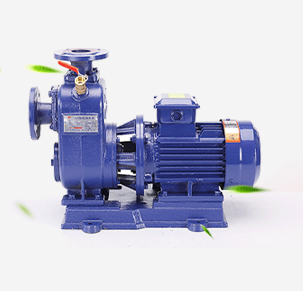Galician
- Afrikaans
- Albanian
- Amharic
- Arabic
- Armenian
- Azerbaijani
- Basque
- Belarusian
- Bengali
- Bosnian
- Bulgarian
- Catalan
- Cebuano
- Corsican
- Croatian
- Czech
- Danish
- Dutch
- English
- Esperanto
- Estonian
- Finnish
- French
- Frisian
- Galician
- Georgian
- German
- Greek
- Gujarati
- Haitian Creole
- hausa
- hawaiian
- Hebrew
- Hindi
- Miao
- Hungarian
- Icelandic
- igbo
- Indonesian
- irish
- Italian
- Japanese
- Javanese
- Kannada
- kazakh
- Khmer
- Rwandese
- Korean
- Kurdish
- Kyrgyz
- Lao
- Latin
- Latvian
- Lithuanian
- Luxembourgish
- Macedonian
- Malgashi
- Malay
- Malayalam
- Maltese
- Maori
- Marathi
- Mongolian
- Myanmar
- Nepali
- Norwegian
- Norwegian
- Occitan
- Pashto
- Persian
- Polish
- Portuguese
- Punjabi
- Romanian
- Russian
- Samoan
- Scottish Gaelic
- Serbian
- Sesotho
- Shona
- Sindhi
- Sinhala
- Slovak
- Slovenian
- Somali
- Spanish
- Sundanese
- Swahili
- Swedish
- Tagalog
- Tajik
- Tamil
- Tatar
- Telugu
- Thai
- Turkish
- Turkmen
- Ukrainian
- Urdu
- Uighur
- Uzbek
- Vietnamese
- Welsh
- Bantu
- Yiddish
- Yoruba
- Zulu
Telephone: +86 13120555503
Email: frank@cypump.com
Set . 03, 2024 22:59 Back to list
submersible pump for sludge
Submersible Pumps for Sludge Handling An Essential Tool for Wastewater Management
Submersible pumps have become an indispensable component in the field of wastewater management, particularly for handling sludge. These pumps are designed to operate while fully submerged in liquid, making them ideal for various applications, including sewage treatment plants, industrial processes, and municipal waste facilities. Their unique design and efficiency offer significant advantages over conventional pumps, ensuring effective sludge removal and management.
Submersible Pumps for Sludge Handling An Essential Tool for Wastewater Management
Moreover, submersible pumps operate at a lower noise level than many surface-mounted pumps. This feature is particularly advantageous in environments where noise pollution is a concern, such as residential areas or within treatment plants that need to minimize disruption. Their design allows them to be placed directly into the sludge pits, eliminating the need for extensive piping systems that can contribute to noise and inefficiency.
submersible pump for sludge

Energy efficiency is another critical factor when considering submersible pumps for sludge. These pumps are typically designed with advanced motor technology, which allows them to operate optimally under varying loads. As a result, they consume less energy compared to traditional pumps, translating to lower operating costs over time. Additionally, many models come equipped with variable frequency drives that enable precise flow control and further enhance their energy-saving capabilities.
The versatility of submersible pumps is noteworthy. They are available in various sizes and configurations, allowing them to be tailored to specific applications. Whether dealing with small residential wastewater systems or large-scale industrial sludge handling, there is a submersible pump suited for the task. This adaptability is crucial in ensuring the efficient removal and processing of sludge, contributing to effective waste management strategies.
Maintenance is also a crucial aspect of submersible pumps. Many modern designs include features that simplify maintenance and reduce downtime. For instance, some pumps allow for quick disassembly and access to internal components, making it easier for operators to conduct routine inspections and repairs. Additionally, the durability of materials used in these pumps, such as stainless steel and thermoplastics, ensures longevity and resilience against the corrosive nature of sludge.
In summary, submersible pumps for sludge handling offer a range of benefits that make them essential tools in wastewater management. Their ability to handle viscous materials, operate quietly, enhance energy efficiency, and adapt to various applications showcases their importance in achieving effective sludge management. As the demand for sustainable and efficient wastewater treatment solutions continues to grow, submersible pumps will undoubtedly play a critical role in meeting these challenges. Investing in high-quality submersible pumps is a forward-thinking step towards improving wastewater systems and promoting environmental sustainability.
-
High-Performance Air Pumps for Sand & Gravel | Efficient Transport
NewsAug.03,2025
-
ISG Series Vertical Pipeline Pump - Chi Yuan Pumps Co., LTD.|Energy Efficiency, Corrosion Resistance
NewsAug.03,2025
-
ISG Series Pipeline Pump - Chi Yuan Pumps | Energy Efficiency&Compact Design
NewsAug.03,2025
-
ISG Series Vertical Pipeline Pump - Chi Yuan Pumps Co., LTD.|High Efficiency, Low Noise, Durable
NewsAug.02,2025
-
ISG Series Vertical Pipeline Pump - Chi Yuan Pumps | High Efficiency, Low Noise
NewsAug.02,2025
-
ISG Series Vertical Pipeline Pump- Chi Yuan Pumps Co., LTD.|High Efficiency&Compact Design
NewsAug.02,2025










